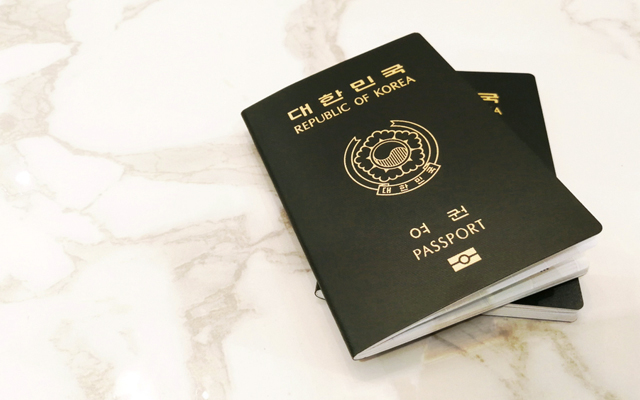Japan tops the world’s most powerful passport list in the latest Henley Passport Index, while South Korea is now tied with Singapore in second place.
Citizens of both Singapore and South Korea enjoy visa-free/visa-on-arrival access to 189 destinations around the globe. Japan, which overtook Singapore to take the lead on the index last October, scores 190 on the same measure.

Germany and France remain in third position, with citizens able to access 188 countries and territories.
The US and the UK – which were tied at the top of the index in 2015 – continue sliding down the ranking, and now sit in joint sixth place with a score of 185.
As they have done for much of the index’s 14-year history, Iraq and Afghanistan remain at the bottom of the ranking, with access to just 30 visa-free destinations.
Dominic Volek, managing partner of Henley & Partners Singapore and head of South-east Asia, commented that this latest ranking shows that despite rising isolationist sentiment in some parts of the world, many countries remain committed to collaboration.
“The ascent of countries such as South Korea and the UAE on the Henley Passport Index reminds us that opening your borders to others results in reciprocal benefits and improved passport strength for your own citizens. The countries that perform well on the index are those that are embracing new models of global citizenship and adapting to, rather than shrinking away from, an increasingly globalised world. The general spread of open-door policies has the potential to contribute billions to the global economy, as well as create significant employment opportunities around the world.”
Asian countries’ continued dominance of the Henley Passport Index reflects the remarkable effect that international mobility and migration has had on the region.
China’s steady ascent up the rankings over the past few years is a clear demonstration of this, Henley noted. In 2017, the country was ranked 85th, with citizens able to access just 51 destinations. Going into 2019, China sits in 69th place, with its nationals now able to access 74 countries and territories around the world.
Going forward, Henley cited experts sentiment that neither the US nor EU member states are in line to substantially revise their current visa policies, whereas countries in other parts of Europe (such as citizenship-by-investment newcomers Moldova and Montenegro), as well as those in Asia and the Middle East, look set to continue seeking visa-waiver agreements with diplomatic allies.
A question mark remains over the ultimate impact of Brexit. While the deal hangs in the balance, it is difficult to anticipate what the ultimate ramifications will be for EU and UK citizens, as well as for EU and UK trade and co-operation.
Finally, insights from the report show that the ever-growing trend towards visa-openness is unlikely to slow down. Overall, 2019 looks set to hold some surprises in the travel freedom space as more countries and citizens embrace the benefits of global mobility.




















